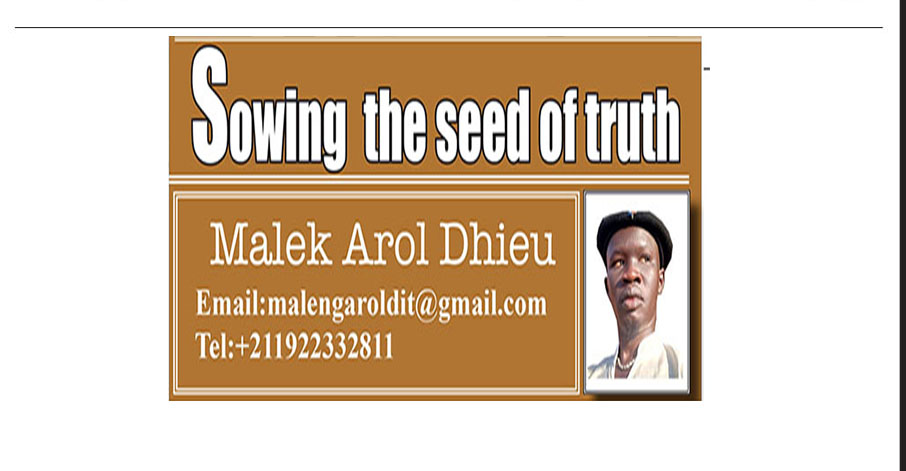By Malek Arol Dhieu
When there is a 50-kg sack of flour at home, a man becomes too lazy to go out and look for more. It is only when his wife breaks the news of completion that he charges his commitment, goes out, and looks for another 50-kg sack of flour or two. What then happens during the days he is in search of another sack of flour?
He and the people at home continue sleeping with rattling stomachs as they set their eyes on the road. He now resorts to praying, asking God for what to eat—a thing he never gave a trial when his sack of flour was full. Hunger now makes him recall those to whom he owes money, cows, or anything of that kind. He now wears a hustling uniform, full combat ignites his brain and goes out to look for food.
South Sudan is gifted with oil, as evidenced by the fact that it is found almost in every state. Since South Sudan became independent, everything has been said to be fixed with oil revenues. Roads, bridges, schools, hospitals, railways, dams, reservoirs, and dykes are said to be constructed with oil itself or oil money. A typical example is Bahr El Ghazal Road.
Agriculture, education, and the healthcare system are said to be fixed by oil revenues. Airports, security, the army, parliament, and borders are said to be fixed with oil money. Everything is said to be fixed with oil money. When any international tie is being made, the discussion is centered around oil. When any country that supported South Sudan during the liberation struggle wants to be rewarded for a job well done, the only thing to give is oil.
When any leader feels he or she should be the one to lead South Sudan, the only promise he or she gives to external supporters is oil. When non-oil revenues drop or even go missing, neither the presidency nor the economic cluster takes measures against whoever is responsible, but when oil revenues go missing, offices are closed, and people go searching the whole day. Any failure to retrieve them results in a delay in salary for five or so good months.
As a new nation, there are many areas to generate money from, not just oil. But these areas need brains, and because they need brains, the leaders of South Sudan do not give a damn about them. If, indeed, there were leaders who put their brains to work, half of the revenues generated from oil could be generated from agriculture, tourism, Nile, either by fishery or hydroelectricity, and other minerals such as nickel and uranium, whose importance has been masked by gold. Other revenues can also be generated from railways and ports if they are built, and a lot more.
Now that oil is the only thing the government of South Sudan is using for salary payment, development, peace implementation, lobbying for arms embargo lifting, strengthening international ties, paying back those who supported South Sudan during the civil wars, preparing elections, maintaining the country’s security, appeasing the growing number of rebels, out of that bigger portion of oil being stolen by refiners and a few individuals who quench their thirst with oil and not water,
What if the refining companies today broke the shocking news that oil is no more? How would that news sound in the ears of the government? Of course, it would sound shocking because the other revenues would resort to needing brains. What then will happen during the time the government is waking up its brain to work?
People will suffer. Let me put it the right way. People will suffer more than they are suffering now. It is good to use the brain despite having a guarantee of survival. South Sudan is 12 years old, but when her brain is taken for a check-up now, it will be found unused. This is because of oil. Those who say oil is both a curse and a blessing are as right as rain.
The author is a medical student, University of Juba.




